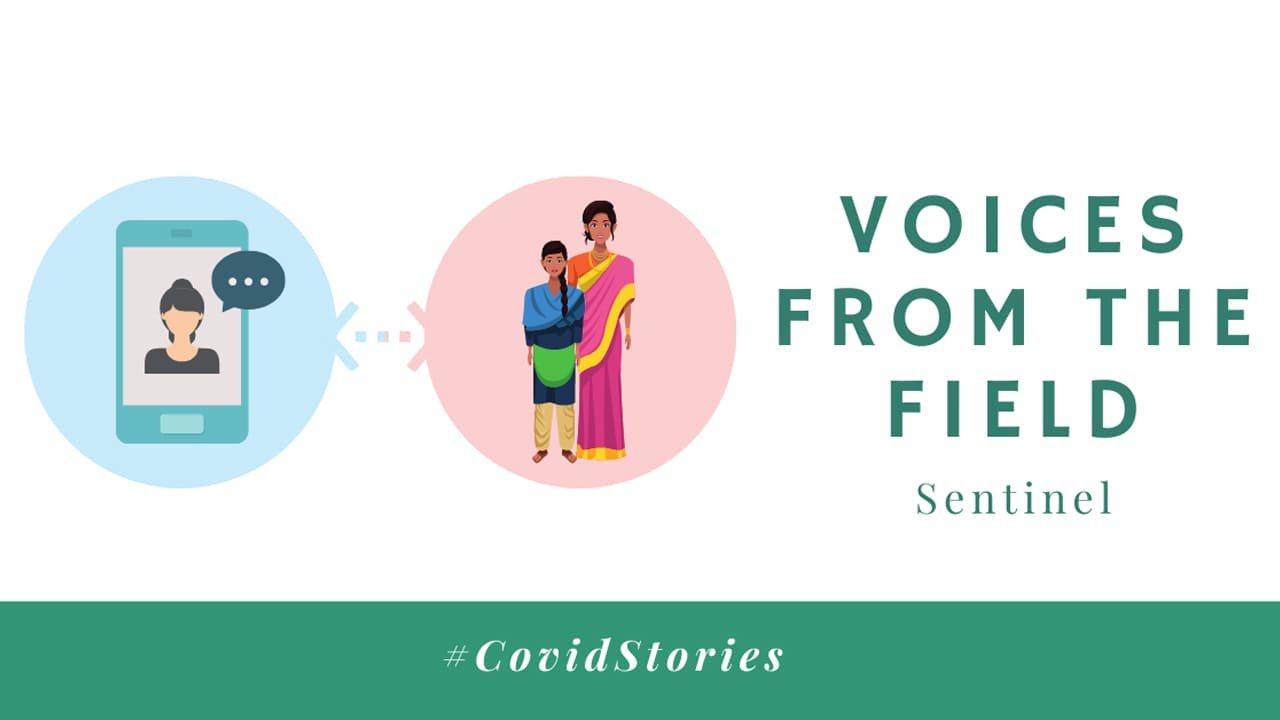Geetarani Lourembam
SENIOR PROJECT COORDINATOR
Social casework refers to a client-centered method of social work in which a social worker facilitates an individual or a family to channelize their capacity using available resources, to solve an issue in a given context. During the COVID19 lockdown, field visits for casework that are undertaken by social workers (comprising visits to the Child Care Institutions, Child Welfare Committees, police station, hospitals, communities, etc.) have been restricted to prevent the spread of COVID-19. Although active follow-ups have been taking place through phone calls, they often do not match up to the interactions that are held in-person. However, a recent case highlighted how remote social casework can also be effective to work for the best interest of a child.
Meena, 15 years old (name changed) entered the juvenile justice system when she was 14 years old. It’s been over a year since Prerana has been consistently working with the child and her family. Quite similar to the experience of many marginalized families, Meena’s family does not have a source of income currently and is dependent on relief material for their survival.
The regular interaction with Meena’s family during the lockdown has often centered on providing assistance in procuring ration and other essential supplies. In June, the social worker was informed by her mother that Meena was three months pregnant. According to the family, prior to the lockdown, a 28-year-old married man had sexually assaulted Meena when the parents were not home. To provide assistance in the case, the team held an internal discussion to understand the resources that are available and can be reached out for supporting the child and the family.
The social worker contacted the CWC, and also reached out to a social worker from Childline to conduct a Home Visit. This visit complemented the interaction of the social worker with the mother and the child. It helped the social worker on getting better clarity of the current situation and the well-being of the child. Meena and her mother reached the hospital on the same day. The social worker identified a partner organization, Dilaasa Crisis Centre*, working in the hospital and connected them to the family for psycho-social support to the child and the mother. Police were also contacted. The police came to the hospital for an initial inquiry. The social worker made an attempt to speak to the concerned police official, however, the request was declined as they did not want to touch the mother’s phone due to the COVID-19 situation. Through Meena’s mother, the social worker shared her contact number with the police and requested them to call the social worker from their own phone. The mother was called to the police station for filing the FIR. The social worker tried to remain in contact with the mother, however, her phone had gotten switched off by midnight. The mother stayed at the police station throughout the night as the police took her statement. After the FIR was filed, the accused was arrested by the police on the same night.
The mother called the social worker the next morning and shared her ordeal of staying at the police station overnight. She also shared about the insensitivity of police during the entire process of taking the statement. She broke down in tears and narrated that the police had physically assaulted (slap on the face), questioning her parenting techniques. The social worker comforted the mother and the matter was internally discussed within the team. Subsequently, this incident was kept in record and was shared with the CWC in the report submitted to them.
The recommendation from the registered medical practitioner was taken regarding Meena’s Medical Termination of Pregnancy. The social worker interacted with the child and the parent to understand what they wanted. Although the mother had consented to her daughter undergoing the pregnancy termination, Meena was fearful and apprehensive of the medical processes involved in the termination of pregnancy. The counselor from Dilaasa Crisis Centre provided timely in-person counseling to the child on health-related risks of giving birth at a young age. The social worker remained in touch with the Dilaasa counselor who kept the social worker informed about the process. When the child agreed to MTP, the registered medical practitioner refused to undertake the process of pregnancy termination. They shared with the mother that they can go ahead with the process only after getting a written court order. The social worker and the police were left confused at the sudden new requirement which was not mentioned in any law and legislation, as Meena’s pregnancy was below 20 weeks.
The social worker immediately contacted a coordinator of the Dilaasa Crisis Center and discussed the same with her. She also affirmed that no such document is required if the pregnancy is below 20 weeks. The Coordinator from Dilaasa suggested that she would get in touch with the Medical Superintendent of the hospital to clear the same. Meanwhile, the same development was shared with the CWC as well. The CWC understood the matter and suggested that although such provisions are not mentioned in the law, often the registered medical practitioner wants to avoid risk upon undertaking such procedure especially if a minor is involved in the medico-legal matter. Hence, the CWC immediately drafted an order and shared the same with the social worker and police the following morning.
Meanwhile, the coordinator from Dilaasa Crisis Center had also spoken to the authorities regarding the procedural requirements. The order was shared with the registered medical practitioner online and subsequently, the registered medical practitioner initiated the process of MTP. On the same day, the doctors shared the prescription for two medicines with the mother and informed her that the medicine was not available at their hospital and that the mother would need to take it from a chemist at another distant hospital. Amidst the lockdown, it was a struggle for both the social worker and the mother to arrange transport to reach that hospital. The mother finally procured the medicine as the social worker managed to book transport for her.
While the medical and legal assistance was primarily coordinated by Prerana, the social worker and Childline social worker discussed the daily needs and requirements of the family. The Childline social worker then spoke to their concerned authority and provided the required support to their family.
Currently, Meena’s health is being monitored at the hospital. The social worker will work on making an Individual Care Plan, in consultation with the child to ensure healthy recovery and rehabilitation.
In this case, social casework saw a huge turn from conventional ways of practicing it. The child’s health, safety, and the family’s needs could be met through strong coordination and linkages between different stakeholders of the child protection system, rather than in-person intervention. This process was challenging as the social worker had to remotely interact with multiple stakeholders at once to ensure that the child’s health was not at risk. Through remote means of communication, the social worker managed to bring the stakeholders together, mobilized resources, ensured effective communication between Meena’s family and different stakeholders, and helped them make informed decisions throughout the process. Social casework adapts to context and time. With the usage of proper tools and techniques such as observation, home/field visits, timely interaction, establishing means to access information, coordination, social casework can adapt to meet the emerging needs.
*The Dilaasa Crisis Centre provides counseling to women facing domestic violence. Women are referred to the crisis center from the different departments in the hospital such as casualty, out-patient, and in-patient departments. Referrals to ‘Dilaasa’ are also made from other hospitals and health facilities of the MCGM. Doctors and nurses in all departments of the hospital have been trained to ask screening questions and identify women experiencing domestic violence. If the woman is admitted to the hospital, the counselors are called to the ward to speak to the woman concerned. In addition, crisis center staff visit the Casualty department every day and make sure that all women registered as medico-legal cases get the services of the Crisis center.









Follow